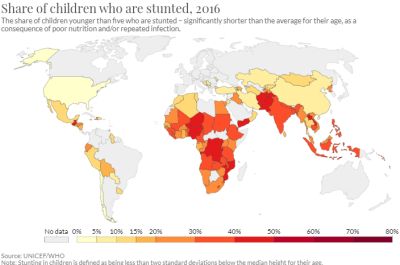Effectiveness of nutrition interventions in low- and middle-income countries: A meta-review
Abstract
Background: Undernutrition remains an unfinished agenda for a majority of low- and middle-income countries (LMICs). Numerous nutrition interventions have been implemented in LMICs and various indicators have been used to measure the impact of these interventions. The aim of this meta-review was to summarise the findings on the effectiveness of various nutrition interventions that have been implemented in LMICs on the WHO global nutrition targets-related outcomes. The six outcomes are- reducing stunting, wasting, anemia among women of reproductive age, low birthweight, childhood overweight, and improving exclusive breastfeeding. This study presents the results for one of the outcomes (stunting).
Methods: We conducted a comprehensive search on 21 electronic databases, including six regional and four systematic reviews (SRs) specific databases. Two researchers independently screened identified records against the inclusion criteria. Quality of included SRs were assessed using the AMSTAR tool. Extracted data were narratively synthesised examining the direction of impact. The review protocol was registered with the EPPI-Centre.
Results: Of 6,597 SRs initially identified, 28 SRs that assessed outcomes of WHO global nutrition targets-related outcomes were eligible for inclusion. We found 12 SRs that assessed stunting outcomes, these SRs synthesised 68 quantitative primary studies, from 29 LMICs. All included SRs were of high quality. Eight nutrition interventions were reported in the included SRs- five nutrition-specific (n=9) and three nutrition-sensitive (n=3). Among all interventions, two nutrition-specific (complementary feeding: n=1; dietary supplementation: n=2) interventions showed a positive effect.
Conclusion: This meta-review identified, two interventions, complementary feeding and dietary supplementation, with most frequently reported evidence of positive impact on stunting. In LMICs, public health policymakers should consider these two interventions for scaling-up.

Authors retain all copyrights. In making a submission to World Nutrition, they are certifying that all material is theirs except quotations, as indicated, and that they have obtained permission for any photos, tables, or graphics taken from other publications or websites.




